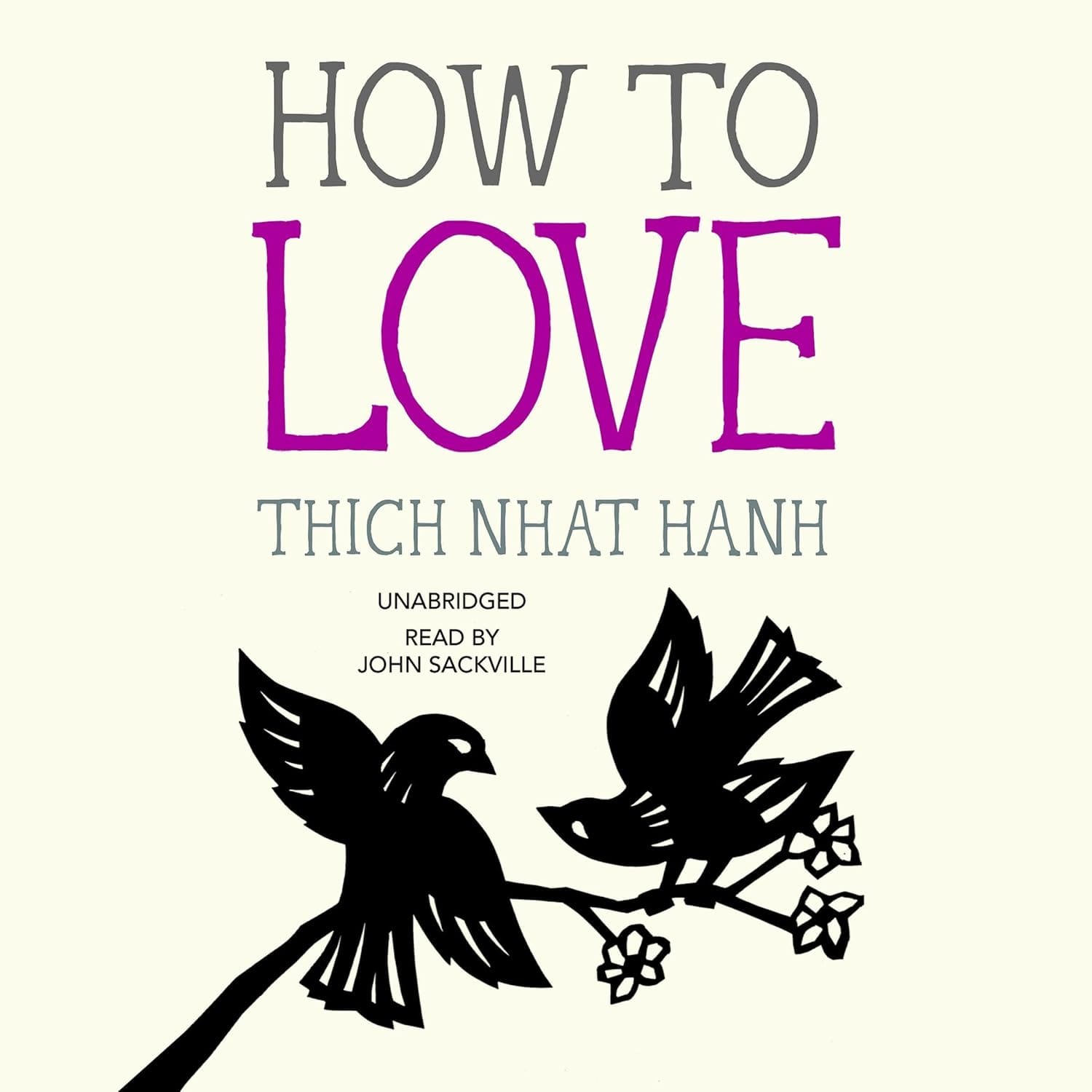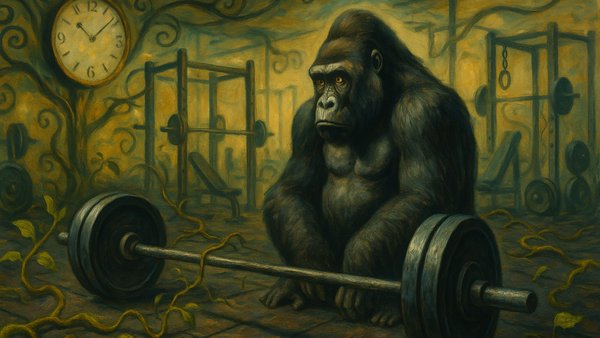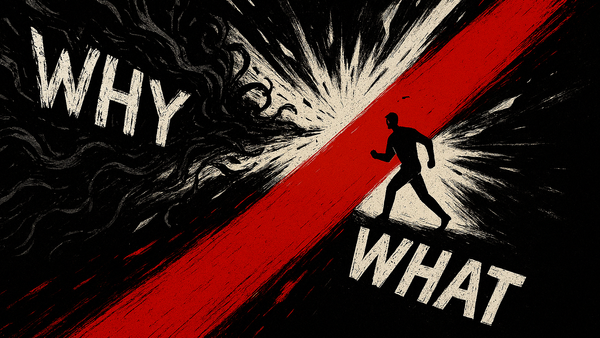Love Is Not a Right
A Gospel Against Entitlement. This week’s issue is about Generation Y, love, and organic veggies.
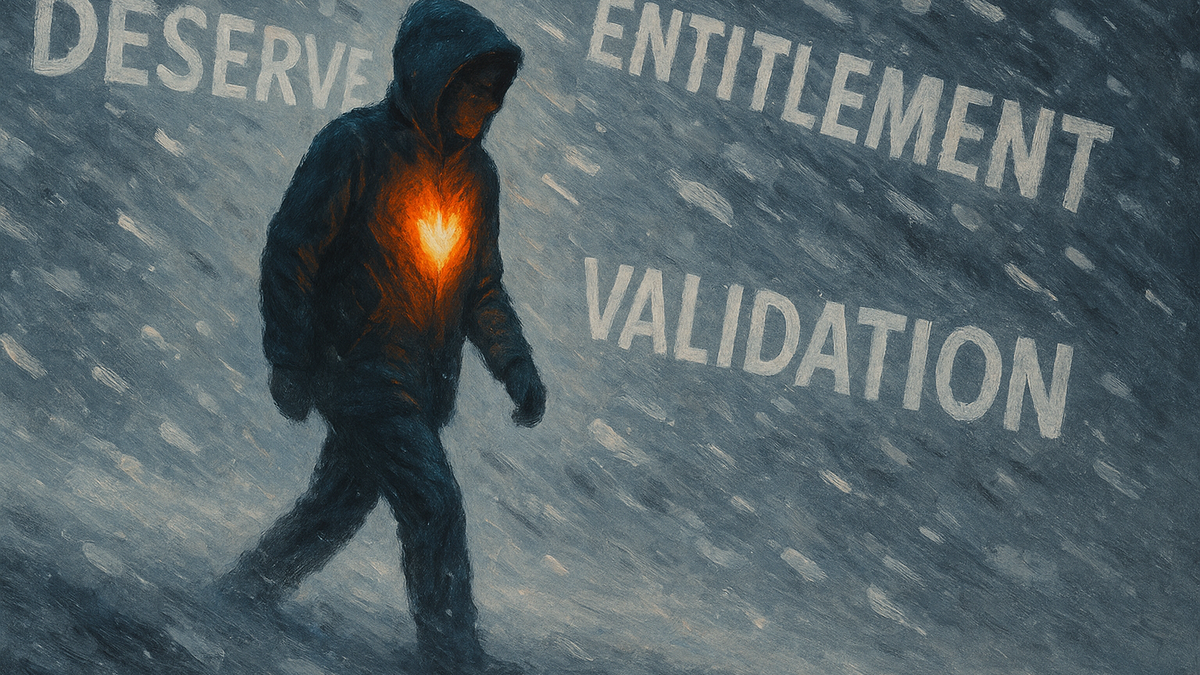
Many mistake intimacy for love, and pleasure for meaning. Especially in a culture addicted to symbols and allergic to substance.
Nowhere is this confusion more obvious than in our contemporary view of sex. Practices that drift from their original biological purpose—unprotected, vaginal intercourse between a man and a woman for the procreation of viable offspring—are increasingly framed as expressions of love, identity, or freedom.
But sex is not inherently an expression of love. It can be, no doubt, but most of the time, it isn’t.
Society now speaks of love the same way it speaks of healthcare or education: as a right. As something owed. As something others should be punished for withholding.
But beneath the rhetoric often lie far simpler, more selfish, and less noble intentions: the desire to gain, to claim, to possess. For many, “love” has become little more than a consumable to satisfy their most basic instincts. And like all consumables, it’s hoarded, fetishized, and feared to be lost.
This is not love. Most of what we’ve been taught to associate with love—romantic relationships, grand gestures, gifts—are merely its symbols, not its source.
By disentangling these concepts, we can develop a healthier understanding of love, and in turn, dramatically improve our cognitive and emotional well-being. Unraveling love is a personal journey that helps us find our place in the world.
The Myth of Rights
The idea that love is a right—something owed to us simply by virtue of existing—is a fundamental misunderstanding. What a Christian might call a demon is now paraded as moral progress: the belief that one is entitled to receive without first having sacrificed, served, or transformed. This entitlement, dressed as empowerment, leads only to misery, victimhood, and political rage. It produces neither value for society nor depth in the soul—only resentment, repackaged as righteousness.
Cultivating a constant feeling of being wronged by the world cannot lead us to a life of happiness, peace, and certainly not love. It’s a ritual of self-poisoning. There is nothing wrong with the world. If you believe it’s broken, have you considered the possibility that you are the misalignment? No, the world is good as it is—and any deviation from its goodness is due to us making it so.
How do you know that you’re not already in heaven and making a mess out of it? Do you have any proof? So you’re already in heaven and making a mess out of it. With what are you making a mess? With your mind. If you don’t make a mess out of your mind you’re in heaven anyway.
—Sadhguru
Even our most sacred “rights” are not divine inheritances. They are social agreements, cultural constructs—paper shields that hold only if others agree to hold them with you. At best, they are earned privileges that survive only through ongoing defense.
Within any societal structure, no one can have any right without others granting it—explicitly or by passive tolerance. In tyrannies, rights are carved out by eliminating those who disagree, leaving only those who comply. This is because no right exists in a vacuum. To claim a right is to imply that someone else must bear an obligation:
A right to education obligates others to provide it.
A right to healthcare obligates others to fund it.
A right to free speech obligates others to endure discomfort, offense, and dissent.
A right to abortion obligates others to endure death and emotional distress.
And if someone claims a right to “love,” then someone else must be forced—emotionally, socially, or politically—to provide it.
Since any right depends on someone else’s mercy—be it people, nature, or any opposing force—love cannot be a right. Love cannot be enforced without becoming something else: manipulation, guilt, coercion. If you expect love as something owed to you, then you are not seeking love. You are seeking control.
The Myth of Privilege
We don’t deserve love. In truth, we don’t deserve anything by default. Not admiration, not wealth, not freedom. These are not rights—they are privileges, and privileges must be earned. That single shift from entitlement to merit has the power to transforms a worldview as it pulls us out of our infantile lull.
I am aware that this must sound like heresy to those raised in a world without responsibility for consequences, which any collectivist societal system like the modern welfare state inevitably births.
Nature doesn’t even grant us the privilege to live. From the spark of attraction to intimacy, from pregnancy to birth to survival to maturation into adulthood—everything about life must be claimed and defended. Not because nature is cruel, but because it is consistent: rewards follow effort, survival follows discipline, privilege follows contribution. This is the expression of the extraordinary value of life and it’s up to each one of us to claim and work towards this privilege, to fight for our survival, and to make the most out of life.
We may be born unequal but we are free. Free to earn privilege and free to preserve inherited privilege through work, dedication, and contribution to society—or lose it through decay. We already touched on the concept of privilege in a past issue of Sunday Sparks.
Strangely, contemporary societies preach the exact opposite of a healthy approach to life: Earned privilege and self-accountability are framed as cruelty and oppression, while unearned rights and collectivized consequences are praised as moral superiority. It champions indulgence and demands insulation from personal consequence. We no longer expect individuals to raise children, yet demand that others’ children care for us in old age. We promote the consumption of alcohol, cigarettes, and unproductive, promiscuous sexual practices, yet insist that subsidized health insurances pay for the inevitable physical and psychological toll. We romanticize trauma, reject resilience, and flood social systems with therapeutic dependency—then demand society to accommodate our fragility. We excuse theft as economic desperation, violence as righteous anger, and criminality as systemic oppression—then complain when safety collapses and the productive flee. Overall, we sever responsibility from pleasure and call it compassion.
In truth, it’s the opposite. Earned and preserved inherited privilege rooted in real contribution is good. Unearned equality for all, subsidized by the productive, is not. Why? Because nature does not care about fairness, only fitness. It incentivizes us to live healthy and productive lives, not because it is noble, but because it’s the only way to survive. If a man poisons his body with continuous substance abuse and cannot afford the cure, he and his family will perish. If a woman aborts her children because raising them seems like too much of a hassle, no one will be there to care for her when she’s too old to care for herself. If a society rewards emotional fragility with status, subsidizes chronic dysfunction with endless therapy, and demands systemic adaptation to every individual’s trauma, it will raise a generation too broken to build and too medicated to think.
But reality cannot be cheated. The economic and biological balance is unyielding: If the unproductive and their ideologies continuously outweigh the productive ones within a given system, the population will eventually start dying until the system collapses and a new, healthier one takes its place.
Love is not a privilege. Neither do we deserve it—regardless of our beliefs or actions according to the modern reframing—nor can we earn it in a transactional sense, as we can earn merit or status through effort. We can become more lovable, yes—but no one is owed love. Even the lowest of the low may carry some hidden fragment that renders them lovable to someone. But that does not mean the world must see it, or reward it. Most won’t.
Freedom to Love
Most of the time, people don’t talk about love even when they think they do. They declare what they want to gain, what they want to consume, or what they demand the right to materially obtain.
Love defies such notions. It isn’t something you can have, and it cannot be done to you. It cannot be forbidden, nor taken from you. Sex, on the other hand, is a commodity. It can be demanded, traded, enforced, and restricted. But love cannot—because it’s an inner quality.
There’s no such thing as a “right to free thought,” because thoughts can’t be restricted—at least not yet. But a “right to speech” we need, because speech can be manipulated, suppressed, or punished. In the same way, we don’t need a “right to love” because love could never be legitimate. Where there is a right, there is an obligation. But love does not depend on obligations. What it takes to love, we already possess. It requires no permission. No grant of mercy from an external authority.
Like Jesus Christ, bleeding and spat upon, still loved. Not because he was loved in return by those he sought to absolve, but because to love was what he chose.
By ripping love from its true meaning, we turn everything into a shallow, transactional experience—devoid of all love. And in doing so, we rob ourselves.
Anybody is free to love. It is a way of life that can be practiced as a response to the world around us. But it does require a certain capacity—one that can be expanded through devotion.
No Love for Nothing
We cannot love for nothing. Even so-called “unconditional love” isn’t blind. It sees something. Love requires recognition—that is its ignition. But this recognition doesn’t need to be earned. Love is not a reward for performance. It is a revelation: something already present is seen. Whether others saw it, or even the person themselves, is irrelevant.
Love is the soul’s YES to something it finds resonant, real, mysterious, fragile, beautiful, or relatable. Not always morally good. Not always socially approved. But deeply true to the one who loves.
Henceforth will I look on all things with love and I will be born again. I will love the sun for it warms my bones; yet I will love the rain for it cleanses my spirit. I will love the light for it shows me the way; yet I will love the darkness for it shows me the stars. I will welcome happiness for it enlarges my heart; yet I will endure sadness for it opens my soul. I will acknowledge rewards for they are my due; yet I will welcome obstacles for they are my challenge.
—Og Mandino, The Greatest Salesman in the World
What we love are the qualities of people and things—their virtue. If something or someone has no qualities, they are not lovable. But here’s the thing: everything has some quality. The challenge is to see it.
Love isn’t owed. It’s given. And sex?
Sex has just as much or as little to do with love as anything else.
Subjects and Objects of Love
Love has a subject and an object. The subject is the lover—the one who feels, practices, and expresses love. The object is the recipient—the one perceived as lovable.
Many miss the concept of love because the lines between subject and object are constantly blurred. They collapse in our language, and we’re left in confusion.
The subject of love cultivates love as a capacity—not as a transaction. They love by recognizing the qualities in others that awaken this capacity. The object of love cannot demand, deserve, or earn love in any direct, transactional sense. They can only cultivate their own capacity to love—becoming a subject in the process.
The self-help industry fails here. It speaks to people as objects, not subjects. It peddles lines like “You deserve love” or “You are lovable as you are,” as if love were a birthright you could eat for dinner. It treats love like praise, validation, or acceptance, leaving the unloved even needier.
But the solution is not to be loved—it is to become loving. Switching roles from object to subject.
The idea that someone “deserves love,” “has a right to love,” or “is enough as they are,” infantilizes. It keeps people waiting, dependent, and hollow. When what they need is to become subjects of love—capable of seeing, recognizing, and giving.
The Practice of Love
So how do we live love? Practicing love refers to two aspects:
- Acts of love
- Recognition of acts of love
Practicing Acts of Love
To act in love is to recognize the qualities of others—and then behave toward them in honor of these qualities. Without hidden agendas. Without subtext. Without fear and insecurity driven simping. Observe people and the world around. Ask yourself: What are their contributions? What are their qualities?
- Didn’t your father choose your mother for her qualities, and didn’t she surrender to his strength?
- Didn’t your mother bear you into this world, blood and breath?
- Doesn’t the rain feed the crops we eat?
- Doesn’t your home shelter you from the outside?
- Isn’t sweat your body’s cooling system—detox, temperature control, evidence of labor and vitality?
- Don’t insects pollinate, clean, recycle, and pressure evolution forward?
This is the lens of love: to see what gives, what supports, what sustains. Identify what makes others lovable. Self-love is no different. The only distinction is that subject and object collapse and you become both the beholder and the beloved.
What are acts of love?
- A kind word of honest appreciation
- A hand extended in a moment of need
- A gaze of compassion and understanding
It doesn’t have to be cinematic sacrifice like surrendering the only float in freezing Atlantic waters while the wreckage sinks behind you.
In fact, acts of love can never exceed the lover’s true capacity. When giving drains you, it’s a means to an end—or performative martyrdom. That is not love.
Practicing Recognition of Acts of Love
Love can be inspired and ignited. It spreads through acts by the one experiencing it. When the recipient—the object—of an act of love recognizes it as such, it can awaken their own. But they don’t “receive” love in a transactional sense. Love isn’t received. It’s sparked.
Most such acts are small, fleeting, and tender. Easily missed, easily trampled. They are vulnerable seeds that must be honored, protected, and cultivated if they are to take root in us, nourish us, and spread further.
To practice recognition is to train our attention, to sharpen our presence. It requires silence, stillness, and sensory vigilance. Look closer. Listen deeper. When we step into the world—especially with those close to us—we must choose presence over distraction.
The amount of love in our lives is not a mystery. It is the result of our investment in these two practices: Giving and Seeing.
Desire, Love, and Marriage
What does “I love you” really mean? Its meaning varies with culture, context, personality, and intent. But, in the realm of romance, it’s typically what people tell each other when they “fall in love”—not when they actually love each other.
Romantic love is entirely different. It blends a cacophony of sexual, emotional, and existential desires, all of which are deeply egoistic and possessive. This is the exact opposite of love. “I love you” seems almost like a deliberate misuse—a manipulation attempt to fool the other into believing that one’s intentions aren’t entirely self-serving in nature. What it usually means is anything from “I want to satisfy my sexual needs with you” to “I expect your compliance for my personal benefit.”
The statement “I love you” often carries a range of unspoken expectations and needs—the exact opposite of something freely given, unbound by the need to receive anything predefined in return. It’s far healthier to use phrases that more accurately reflect one’s current emotional state, such as “I desire you,” “I want you,” or “You’re mine.” Not only are these more honest and real, they’re also more intense and more direct.
In an ideal world, “I love you” should remain an exclamation from a person who acts out of benevolence, compassion, and understanding—someone who assures the other that their actions are meant to serve the other person’s best interests. It would be a pure declaration of “I want the best for you because this is what I would want others to want for me as well.”
But of course, we cannot peer into each other’s rationalizing minds. Given the complexity of human emotion and the inherent ambiguity of our reasoning, “I love you” will always remain a loaded phrase—dense with projection, layered with meaning, and never entirely decipherable.
Of all the misconceptions about love the most powerful and pervasive is the belief that “falling in love” is love or at least one of the manifestations of love. It is a potent misconception, because falling in love is subjectively experienced in a very powerful fashion as an experience of love. When a person falls in love what he or she certainly feels is “I love him” or “I love her.” But two problems are immediately apparent. The first is that the experience of falling in love is specifically a sex-linked erotic experience. We do not fall in love with our children even though we may love them very deeply. We do not fall in love with our friends of the same sex—unless we are homosexually oriented—even though we may care for them greatly. We fall in love only when we are consciously or unconsciously sexually motivated. The second problem is that the experience of falling in love is invariably temporary. No matter whom we fall in love with, we sooner or later fall out of love if the relationship continues long enough. This is not to say that we invariably cease loving the person with whom we fell in love. But it is to say that the feeling of ecstatic lovingness that characterizes the experience of falling in love always passes. The honeymoon always ends. The bloom of romance always fades.
—M. Scott Peck, The Road Less Traveled
Now, what about marriage? If two individuals freely choose to commit to one another, does that invalidate love? No, it does not. On the contrary: love isn’t destroyed by commitment—it is proven by it. If love were only real when unbound, then every promise would be false.
Love is not confined in this way. Both bound and unbound love can be true. While marriage introduces obligations, that doesn’t mean love becomes false or compromised. If love were only a spontaneous, fleeting experience, then yes, it would contradict the enduring commitments of marriage. But if love is more than fleeting emotions—a conscious devotion and a deliberate commitment, a set of behaviors chosen freely rather than out of duty—then marriage can indeed be its highest expression. Not a prison, but a path. Not endured, but walked together.
Ideally, marriage is a continuous, voluntary renewal of devotion to each other and a higher cause. But, of course, like the phrase “I love you” and everything else, marriage rarely reflects the ideal it’s supposed to represent.
In some respects (but certainly not in all) the act of falling in love is an act of regression. The experience of merging with the loved one has in it echoes from the time when we were merged with our mothers in infancy. Along with the merging we also reexperience the sense of omnipotence which we had to give up in our journey out of childhood. All things seem possible! United with our beloved we feel we can conquer all obstacles. We believe that the strength of our love will cause the forces of opposition to bow down in submission and melt away into the darkness. All problems will be overcome. The future will be all light. The unreality of these feelings when we have fallen in love is essentially the same as the unreality of the two-year-old who feels itself to be king of the family and the world with power unlimited. Just as reality intrudes upon the two-year-old’s fantasy of omnipotence so does reality intrude upon the fantastic unity of the couple who have fallen in love. Sooner or later, in response to the problems of daily living, individual will reasserts itself. He wants to have sex; she doesn’t. She wants to go to the movies; he doesn’t. He wants to put money in the bank; she wants a dishwasher. She wants to talk about her job; he wants to talk about his. She doesn’t like his friends; he doesn’t like hers. So both of them, in the privacy of their hearts, begin to come to the sickening realization that they are not one with the beloved, that the beloved has and will continue to have his or her own desires, tastes, prejudices and timing different from the other’s. One by one, gradually or suddenly, the ego boundaries snap back into place; gradually or suddenly, they fall out of love. Once again they are two separate individuals. At this point they begin either to dissolve the ties of their relationship or to initiate the work of real loving.
—M. Scott Peck, The Road Less Traveled
Current Politics
The movement “Love is a Human Right”—which inspired this article—focuses on promoting and protecting the rights of LGBTQ+ individuals worldwide. Spearheaded by Amnesty International, it campaigns against discrimination, violence, and systemic injustices faced by LGBTQ+ communities. The central premise is that everyone has the right to love whomever they choose, free from persecution or prejudice, and to live with dignity, equality, and freedom.
But here’s the catch: none of these claims are things that can be granted from the outside. These demands are nothing that can be granted. If anything they’re the fruits of inner cultivation, of self-work, reflection, learning, and practice. If you cannot live with dignity or freedom, if your life is devoid of love, it is not because of some societal imposed oppression. It is because of your own unresolved shortcomings and lack of practice.
Projecting every shortcoming onto society is not empowerment. This is a form of self-oppression, not the maximization of one’s potential. It creates a high risk to become dependent on recognition instead of developing self-agency. We don’t want to beg for rights instead of building character. We don’t want to wait to be validated instead of growing worthy of it.
What has all this to do with love? Well—nothing.
Love is not a bureaucratic commodity one must fight for. The ability to love, to recognize another soul and cherish it, that lives in us already. Unless, of course, “love” is not what’s truly being fought for, but only used to disguise the true intentions of a hidden agenda about control, power, and money.
So how do we respond to those who seem confused about love? With love. The kind that sees clearly. The kind that honors their dignity not by pandering to their wounds, but by meeting their potential. We practice love by seeing the best in them and calling it forth, by recognizing strength beneath the hurt, and by refusing to play into the pain that keep them small.
Many powerful concepts have already fallen to ideological perversion. Marriage to tax incentive, masculinity to toxicity, truth to perspective, freedom to self-indulgence, justice to revenge.
Don’t let others manipulate your language and the meaning of words. Especially such potent a concept as love.
⏤Ferdinand
SUNDAY’S SPARKS
📝 ARTICLE: Why Generation Y Yuppies Are Unhappy
Insightful essay analyzing the dissatisfaction among Generation Y professionals, attributing it to inflated expectations and a desire for unique success. I like Tim a lot for his humorous and thought-provoking explorations of human behavior. Here, he introduces the concept of GYPSYs—‘Gen Y Protagonists & Special Yuppies’—who believe they are destined for extraordinary careers. He argues that this mindset, combined with the influence of social media, leads to a disparity between expectations and reality, resulting in unhappiness. The essay serves as a reflection on generational attitudes toward work and fulfillment.
If you’re born between the late 1970s and the mid 1990s aka “generation Y” aka a “Millenial”—just like me—you might find this piece of writing insightful.
The GYPSY needs a lot more from a career than a nice green lawn of prosperity and security. The fact is, a green lawn isn’t quite exceptional or unique enough for a GYPSY. Where the Baby Boomers wanted to live The American Dream, GYPSYs want to live Their Own Personal Dream.
“Sure,” Lucy has been taught, “everyone will go and get themselves some fulfilling career, but I am unusually wonderful and as such, my career and life path will stand out amongst the crowd.” So on top of the generation as a whole having the bold goal of a flowery career lawn, each individual GYPSY thinks that he or she is destined for something even better—A shiny unicorn on top of the flowery lawn. So why is this delusional? Because this is what all GYPSYs think, which defies the definition of special.
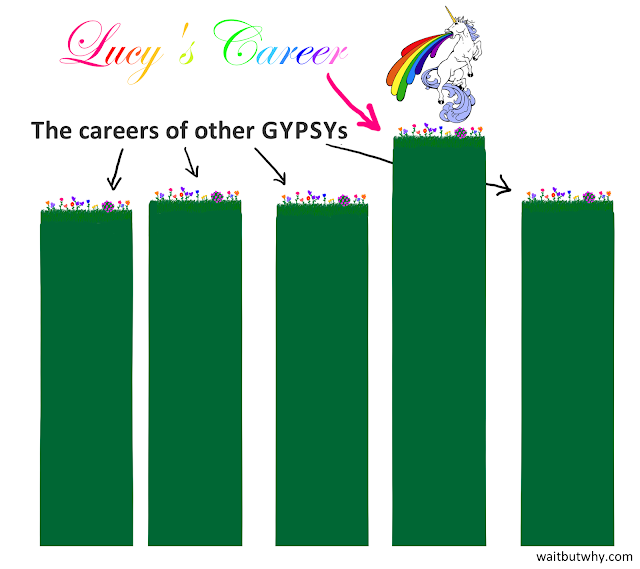
📚 BOOK: How to Love, Thích Nhất Hạnh
Perfectly in line with this weeks topic, How to Love offers, despite, or perhaps because of, its brefity one of the most profound pieces written about love I’ve come across so far. Don’t just read it, let the words touch you and you’ll experience their impact.
A gentle and insightful guide to cultivating compassionate love in all relationships. Thích Nhất Hạnh, a renowned Buddhist monk, teaches readers how to nurture love through mindfulness, understanding, and self-awareness. The book explores different aspects of love—self-love, romantic love, familial love, and love for the world—emphasizing the importance of being present and fully engaged in relationships. “How to Love” offers practical tools for fostering emotional intimacy, resolving conflicts, and developing a sense of peace and harmony within oneself and others.
Compassion is the capacity to understand the suffering in oneself and in the other person. If you understand your own suffering, you can help him to understand his suffering. Understanding suffering brings compassion and relief.
In a deep relationship, there’s no longer a boundary between you and the other person. You are her and she is you. Your suffering is her suffering. Your understanding of your own suffering helps your loved one to suffer less. Suffering and happiness are no longer individual matters. What happens to your loved one happens to you. What happens to you happens to your loved one.
📝 ARTICLE: Buying organic veggies at the supermarket is a waste of money
Critical examination of the cost and benefits of purchasing organic produce, arguing that the higher prices often do not equate to better quality or environmental impact. Deena Shanker, a journalist focusing on food and agriculture, highlights that organic produce can be significantly more expensive, with markups averaging 47%, yet offers minimal nutritional advantages over conventional options. The article also points out that large-scale organic farming may not be more environmentally friendly, as it can result in lower yields and higher greenhouse gas emissions.
Don’t blindly trust any label or ideology. Always try to look behind the curtain.
In 2010, a study found that some organic pesticides can actually have a worse environmental impacts than conventional ones. Plus, a recent study found that because organic agriculture is now done mostly en masse by big corporations (what’s known dismissively by advocates as “Walmart organic”), the lower yields combined with the use of heavy machinery means it actually releases more greenhouse gases into the atmosphere than conventional farming.
A 2009 meta-analysis said there was no nutrient difference in organic versus conventional. Since then, two larger meta-analyses have found slight differences, but ones that are probably too small to really matter. The 2012 study found slightly higher phosphorous levels in the organic produce, and a 2014 study found higher antioxidant levels and lower cadmium levels in organic foods.
But as Jeffrey Blumberg, a professor of nutrition at Tufts University told NPR, because there are so many variations within organic and conventional production systems, drawing overarching conclusions about their products isn’t really methodologically sound. And any differences in nutrition are relatively insignificant. Ultimately, if you want more nutrients, eat more vegetables, organic or not.
SUNDAY’S WISDOM
Remember that self-discipline is not self-suppression. Suppression is when you resist and fight against your desires, keeping them as buried and unexpressed as possible. Self-discipline is when your highest desires rule your lesser desires, not through resistance, but through loving action grounded in understanding and compassion.
From The Way of the Superior Man
by DAVID DEIDA
Captured with the powerful Kindle reader.
Did this issue spark something in you?
Fuel Sunday Sparks’ independence.
Flows straight into content, not coffee.

